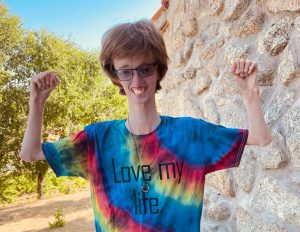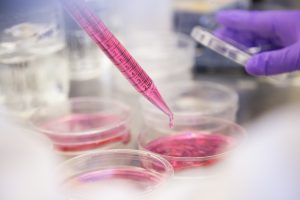You can find more information here about a range of conditions that are genetic, rare or both. There are over 7,000 rare conditions, and new conditions are regularly identified through scientific progress. 8 out of 10 rare conditions are genetic in origin.
At present there is no comprehensive A-Z of all 7,000 genetic and rare conditions that signposts people to UK sources of information and support.
However, there are a number of sources of reputable information that you can access to find out more about specific genetic and rare conditions.
Genetic conditions
The NHS England’s Genomics Education Programme is a good place to start to find out more about a range of common and less common genetic conditions.
You can find information about a wide range of specific chromosome and gene disorders on the Unique website.
Genetic Alliance UK supports children and families affected by genetic disorders so rare that they do not yet have a name (known as syndromes without a name) through our SWAN UK project

Rare conditions
Contact is a charity for families with disabled children. Their website provides a searchable A to Z directory of medical conditions including a number of rare and genetic conditions, and provides links to information and support organisations in the UK.
You can search the comprehensive European Orphanet database for around 6,000 rare conditions. The information provided is comprehensive, but the language the database uses is quite technical since it is designed by healthcare professionals and researchers.
You can find out more about some groups of rare conditions through UK umbrella charities.
There are thousands of inherited metabolic disorders that interfere with how the body grows, reproduces, repairs damage and responds to its environment. You can find out more from Metabolic Support UK.
You can find additional information about more than 70 lysosomal storage diseases which are inherited metabolic diseases characterised by an abnormal build-up of toxic materials in the body’s cells because of enzyme deficiencies. Find out more from the LSD Collaborative.
There are over 600 known neurological conditions and this number is increasing all the time as diagnosis improves. A neurological condition can affect anyone at any age, and affects the brain, spinal cord and/or nerves. You can find out more from the Neurological Alliance.
There are over 400 musculoskeletal rare conditions that affect the joints, bones and muscles and sometimes associated tissues such as nerves. You can find out more from the Adult Rare Bone Disease Network.
There are over 300 immunodeficiencies that affect how the body’s immune system works. You can find out more from Immunodeficiency UK.
There are around 90 inherited white matter disorders (leukodystrophies) which are genetic disorders primarily affecting the white matter of the central nervous system (that is, the brain or spinal cord). Find out more from Alex TLC.
Mitochondrial diseases are the term given to a group of genetic medical disorders caused by mutations in mitochondria, the tiny organelles present in nearly every cell in our bodies that generate about 90% of the energy we need to live. You can find out more from the Lily Foundation
There are a number of rare cancers, defined as all cancers outside the ‘big four’ of breast, prostate, lung and bowel cancer. You can find out more from Cancer 52.
There are also a number of rare infectious diseases. We are not aware of any umbrella charities in this area, but you can find out more from the Government’s UK Health Security Agency.

New treatments for genetic and rare conditions
We are often asked whether there are new treatments being developed for a particular genetic or rare condition.
Clinical trials for new treatments for genetic and rare conditions often involve patients who are living in a number of different countries. This is because the number of people living in each country with a particular condition may be small, and there may only be one or two specialist centres in each country with the technical expertise needed to support the trial.
The international nature of clinical trials for rare conditions means that the best place to find information about clinical trials of new treatments is through a US site called clinicaltrials.gov. You can search by the name of the condition, and the website will tell you whether any clinical trials are taking place. If a trial is taking place, you can click on the name of the trial to find out which specialist centres in which countries are enrolling patients into the trial.

